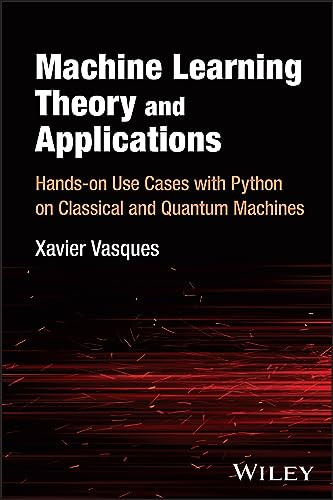

Most ebook files are in PDF format, so you can easily read them using various software such as Foxit Reader or directly on the Google Chrome browser.
Some ebook files are released by publishers in other formats such as .awz, .mobi, .epub, .fb2, etc. You may need to install specific software to read these formats on mobile/PC, such as Calibre.
Please read the tutorial at this link: https://ebookbell.com/faq
We offer FREE conversion to the popular formats you request; however, this may take some time. Therefore, right after payment, please email us, and we will try to provide the service as quickly as possible.
For some exceptional file formats or broken links (if any), please refrain from opening any disputes. Instead, email us first, and we will try to assist within a maximum of 6 hours.
EbookBell Team

4.4
12 reviewsEnables readers to understand mathematical concepts behind data engineering and machine learning algorithms and apply them using open-source Python libraries
Machine Learning Theory and Applications delves into the realm of machine learning and deep learning, exploring their practical applications by comprehending mathematical concepts and implementing them in real-world scenarios using Python and renowned open-source libraries. This comprehensive guide covers a wide range of topics, including data preparation, feature engineering techniques, commonly utilized machine learning algorithms like support vector machines and neural networks, as well as generative AI and foundation models. To facilitate the creation of machine learning pipelines, a dedicated open-source framework named hephAIstos has been developed exclusively for this book. Moreover, the text explores the fascinating domain of quantum machine learning and offers insights on executing machine learning applications across diverse hardware technologies such as CPUs, GPUs, and QPUs. Finally, the book explains how to deploy trained models through containerized applications using Kubernetes and OpenShift, as well as their integration through machine learning operations (MLOps).
Additional topics covered in Machine Learning Theory and Applications include
Current use cases of AI, including making predictions, recognizing images and speech, performing medical diagnoses, creating intelligent supply chains, natural language processing, and much more
Classical and quantum machine learning algorithms such as quantum-enhanced Support Vector Machines (QSVMs), QSVM multiclass classification, quantum neural networks, and quantum generative adversarial networks (qGANs)
Different ways to manipulate data, such as handling missing data, analyzing categorical data, or processing time-related data
Feature rescaling, extraction, and selection, and how to put your trained models to
…